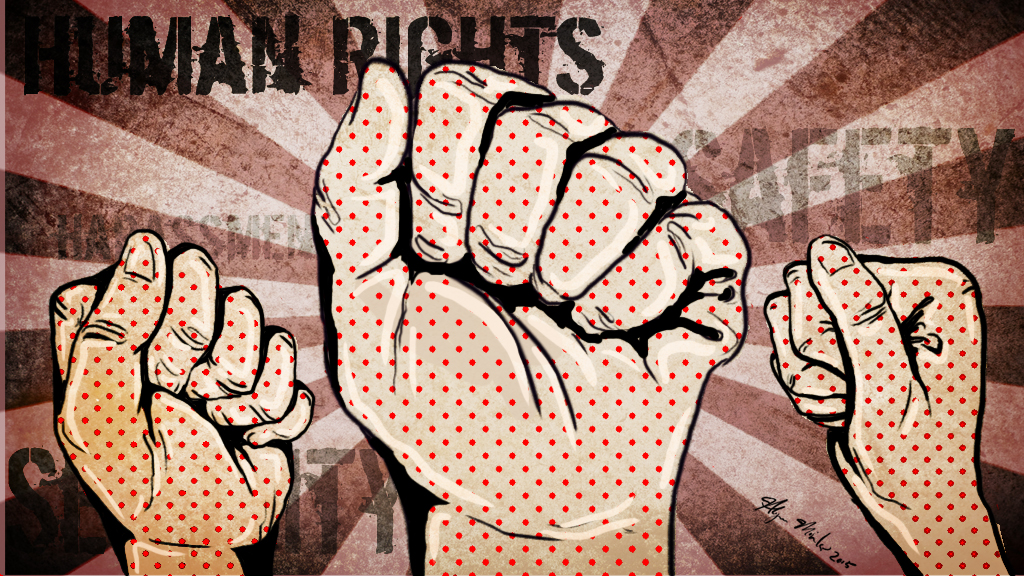ODU and the Right to Not Be Harassed
by Mandi Moon | published Sep. 7th, 2015
Doesn't everyone have the right to feel safe?
The answer is an unequivocal yes, which is why even as a progressive anti-censorship individual I firmly believe that Old Dominion University (ODU) was well within its rights to facilitate the removal of offensive, borderline threatening banners prominently displayed near their campus during freshman move-in.
This situation boils down to a conflict of rights: the fraternity’s right to free speech and the incoming students’ rights to safety and security. It is clear that the banners’ message violates incoming freshmen’s right to the latter. By having them removed, ODU was protecting the fundamental rights of its students.
By having [the banners] removed, Old Dominion University was protecting the fundamental rights of its students.
According to
Although the right to safety and security is not explicitly stated in the United States Bill of Rights, it is protected under Article III of the
In his article "Don't Mess With the First Amendment," Nathan Lichtenstein argues that by having the banners removed, ODU was succumbing to political correctness for political correctness' sake, and that since the banners did not explicitly state "I'M GOING TO RAPE YOU," they must not be threatening. However, Lichtenstein fails to realize that danger rarely ever presents itself so blatantly, and threats do not always wear clown suits and dance around in front of you. Sometimes a threat to your safety is carefully concealed; sometimes it is hung on a bed sheet from a frat house.
The banners allegedly hung by ODU students, which included phrases such as “Hope your baby girl is ready for a good time” (which has a clear sexual connotation in modern culture), at once dehumanized both the incoming freshmen and their mothers, attributed ownership of both of them to the fathers and implied that sexual activity was sure to take place between members of the fraternity and the women in question. Nowhere on the banner do the creators indicate that consent would be required, or that it is even an issue at all. At the very least, the banners’ phrasing is enough to give pause to a 17- or 18-year-old incoming student considering walking past the building at night; the message falls just barely shy of blatant sexual harassment.
Under the Universal Declaration of Human Rights, everyone has the right to safety and security. That includes the right not to constantly worry about being harassed on the way home from class. When anyone’s speech, in this case a crude “invitation” prominently displayed on bed sheets, infringes upon a person’s right to safety and security, it becomes a question of where the speaker’s rights end and the listener’s begin.
In this case, free speech conflicts with incoming and existing students’ right not to be terrified to walk past the frat house in question alone or at night without putting themselves in danger of harassment, which trumps the banners’ creators’ rights to be generally awful people.



